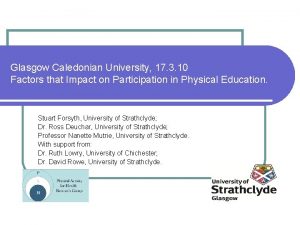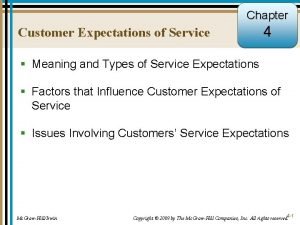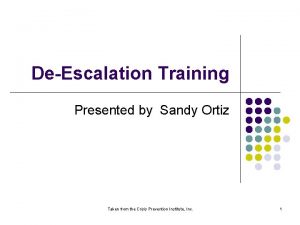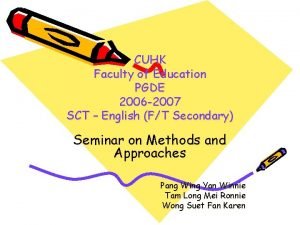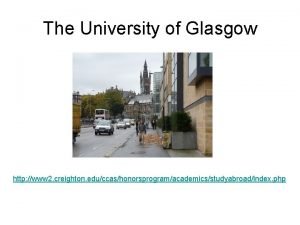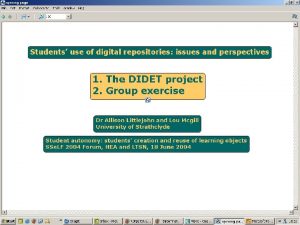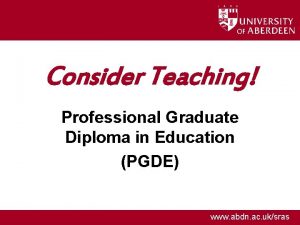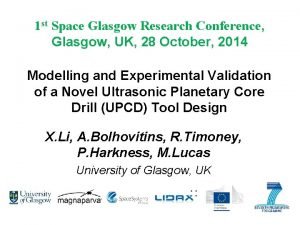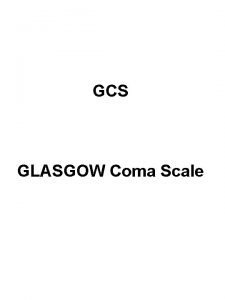MLevel PGDE at the University of Glasgow Escalate












- Slides: 12

M-Level PGDE at the University of Glasgow Escalate 5 June 2009 University of Lancaster

Scottish Parameters • PGDE (old: 120 credits at level 10) • PGDE (new: 90 credits at level 11 and 30 at level 10) • General Teaching Council of Scotland – – Standard for Initial Teacher Education Standard for Full Registration Chartered Teacher Scottish Qualification for Headship

Wider parameters • Curriculum for Excellence – – Successful learners Effective contributors Responsible citizens Confident individuals • Knowledge explosion • Social trends

Some aims • Align initial teacher education with other continuous professional learning which is cross-sectoral • Develop evidence-based practice and criticality • Enrich professional identity • By these means to prepare teachers to face the contemporary challenges in a context of rapid and unpredictable change

Teacher identity • • • Leaders of learning Reflective practitioners Enquiring practitioners Collaborative practitioners Competent users and creators of multiple literacies

Postgraduate Diploma in Education in Primary/Secondary in Subject/s The programme Understanding Learning and Teaching P G D E Learning and Teaching in the Primary/Secondary curriculum Evaluating Learning and Teaching School Experience P O R T F O L I O 11 30 10 30

Evaluating Learning and Teaching • • How we achieve M-level-ness Nomenclature Alignment with ULT Cycle 1: observation methods; educational databases; ethics; how to align inquiry with tools • Cycle 2: identifying issue and working through it as in cycle 1

Assessment P O R T F O L I O • LTPC/LTSC – formative and summative planning tasks • ULT – conventional 3000 word essay • School Experience – 5 pass/fail reports • ELT – 1500 word rationale – Table of evidence – 500 word evaluation

Issues arising from assessment (students) • Progression to graduate studies within reach of most students • Awareness of the role of evidence-based practice • Awareness of need for continuous review • Active learning • Supporting the emotional context of learning • Contribution of science graduates

Issues arising from assessment (staff) • Useful indicator of where learning needs to be strengthened • Theories-in-use • Policy processes • Supporting learning processes, rather than feeding strategic learners

Next steps • Research • Remaining credits

Interim conclusions • Aligning teacher education with other professional learning? • Developing evidence-based practice and criticality? • Enriching professional identity? • Enabling beginning teachers to face contemporary challenges? • Focussing on skills alone?

